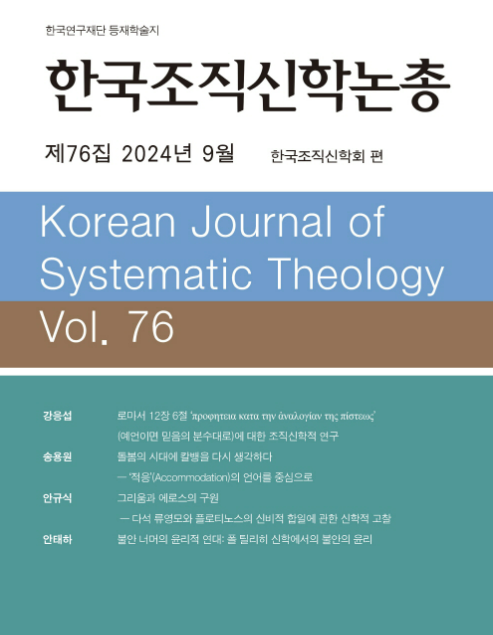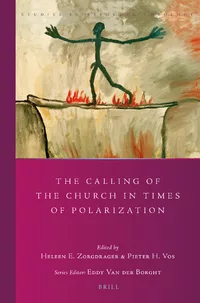*페이지 하단의 '바로가기' 버튼을 눌러 전문을 다운로드 받으실 수 있습니다.
본고는 기독교 신학의 핵심 주제인 죄론(Hamartiologie)이 신약성경 시대부터 현대에 이르기까지 어떻게 전개되었는지를 역사적으로 고찰하고, 이를 통해 오늘날의 기독교 선교를 위한 신학적 함의를 도출하는 것을 목적으로 한다. 죄에 대한 이해는 인간론과 구원론의 기초일 뿐만 아니라, 죄 가운데 있는 인간과 세계를 회복시키는 사역인 선교의 방향을 결정하는 중요한 신학적 전제이기 때문이다. 성경이 죄를 하나님에 대한 불순종과 관계의 단절로 규정한 이래 , 이 이해는 교부 시대 아우구스티누스의 '원죄'(peccatum originale) 교리 , 중세 안셀무스의 '대속적 만족'(satisfactio) 개념 , 그리고 종교개혁가 루터의 '자기중심성'(curvatus in se)과 칼뱅의 '전적 타락' 사상으로 이어지며 심화되었다. 계몽주의 이후 죄의 개념이 개인의 도덕적 문제로 축소되기도 했으나 , 20세기 역사적 비극을 거치며 죄는 다시금 실존을 지배하는 강력한 세력으로 재조명되었다.
이러한 죄론의 역사는 기독교 선교에 깊은 함의를 제공한다. 원죄 교리는 모든 인간이 구원의 대상임을 밝히며 선교의 보편성을 보증하고 , 인간 스스로 구원할 수 없다는 사실은 선교가 인간의 노력이 아닌 오직 예수 그리스도를 통한 하나님의 은혜를 선포해야 함을 강조한다. 또한 죄는 개인을 넘어 사회·문화 속에 스며든 '구조적 악'으로 작동하기에, 선교는 개인 구원을 넘어 사회 변혁을 지향하는 총체적 사명을 감당해야 한다. 나아가 죄의 경험이 문화에 따라 죄책감(서구), 수치심(아시아), 공포(아프리카) 등 다르게 나타나므로, 복음의 본질을 견지하며 각 문화에 맞게 적용하는 해석학적 '상황화' 작업이 필수적이다. 결론적으로, 죄를 하나님에 대한 불순종이자 개인을 넘어선 보편적, 구조적 현실로 이해할 때, 기독교 선교는 그 당위성과 보편성을 확보하고 개인 구원과 사회적 변혁을 아우르는 하나님 나라의 총체적 복음을 온전히 증언할 수 있다.
This paper historically examines the development of Hamartiology, a core theme in Christian theology, from the New Testament era to the present day, with the aim of deriving theological implications for contemporary Christian mission. The understanding of sin is not only the foundation of anthropology and soteriology but also a critical theological premise that determines the direction of mission, which is the ministry of restoring humanity and the world from sin. Since the Bible defines sin as disobedience to God and a rupture in the relationship with Him, this understanding has been deepened through various eras: Augustine's doctrine of 'original sin' (peccatum originale) in the patristic period, Anselm's concept of 'satisfaction' (satisfactio) in the Middle Ages, and the ideas of 'self-centeredness' (curvatus in se) by Luther and 'total depravity' by Calvin during the Reformation. Although the concept of sin was reduced to an individual moral issue after the Enlightenment, historical tragedies of the 20th century have led to a renewed recognition of sin as a powerful force dominating existence.
This history of Hamartiology offers profound implications for Christian mission. The doctrine of original sin confirms the universality of mission by revealing that all human beings are objects of salvation. The fact that humans cannot save themselves underscores that mission must proclaim the grace of God through Jesus Christ, rather than human effort. Furthermore, as sin operates as a 'structural evil' embedded within society and culture beyond the individual level, mission must undertake a holistic task aimed at social transformation. Finally, given that the experience of sin manifests differently across cultures—such as guilt (the West), shame (Asia), and fear (Africa)—an interpretive 'contextualization' that applies the gospel to each specific context while upholding its essence is essential. In conclusion, when sin is understood as disobedience to God and as a universal, structural reality transcending the individual, Christian mission can secure its justification and universality, thereby fully testifying to the holistic gospel of the Kingdom of God, which encompasses both individual salvation and social transformation.


.png)




